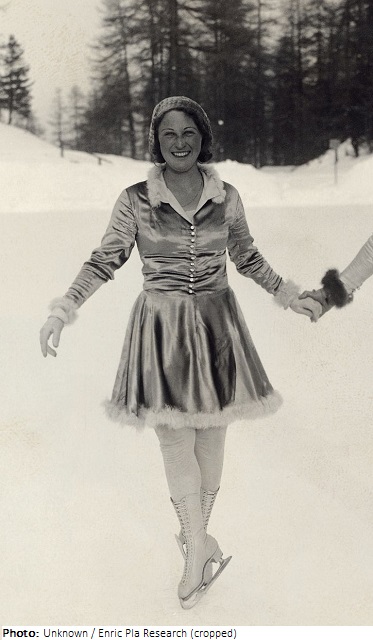
| Roles | Competed in Olympic Games |
|---|---|
| Sex | Female |
| Full name | Friederike "Fritzi"•Burger (-Nishikawa-, -Russell) |
| Used name | Fritzi•Burger |
| Born | 6 June 1910 in Wien (Vienna), Wien (AUT) |
| Died | 16 February 1999 (aged 88 years 8 months 10 days) in Bad Gastein, Salzburg (AUT) |
| Measurements | 157 cm |
| Affiliations | WEV, Wien (AUT) |
| NOC |  Austria Austria |
| Medals | OG |
| Gold | 0 |
| Silver | 2 |
| Bronze | 0 |
| Total | 2 |
Fritzi Burger was Austrian champion four consecutive times from 1928-31 in ladies‘ figure skating and was the successor to Herma Planck-Szabo, who had dominated the event in the 1920s. At the first European Championship with a separate ladies’ competition, Burger won the gold medal in Berlin in 1930, although Sonja Henie of Norway did not compete that year.
Burger was never able to beat Henie in a competition, so she mostly settled for second place, as at the 1931 and 1932 European Championships, also placing third in 1933. Burger also took part in four World Championships, winning silver in 1929 and 1932 and bronze in 1928 and 1931. At the Olympics, she suffered the same fate, twice losing out to Henie.
Burger finished her career in 1934 and went to London, where she married Shinkichi Nishikawa, a grandson of the Japanese pearl magnate Kokichi Mikimoto. However, they returned to Austria with her husband and gave birth to a son in the summer of 1937 in Vienna (Wien). During the war most members of her Jewish family were killed by the Nazis. In the 1990s, she lived in the United States, where she often gave interviews on figure skating history.
| Games | Discipline (Sport) / Event | NOC / Team | Pos | Medal | As | |
|---|---|---|---|---|---|---|
| 1928 Winter Olympics | Figure Skating (Skating) |  AUT AUT |
Fritzi Burger | |||
| Singles, Women (Olympic) | 2 | Silver | ||||
| 1932 Winter Olympics | Figure Skating (Skating) |  AUT AUT |
Fritzi Burger | |||
| Singles, Women (Olympic) | 2 | Silver |